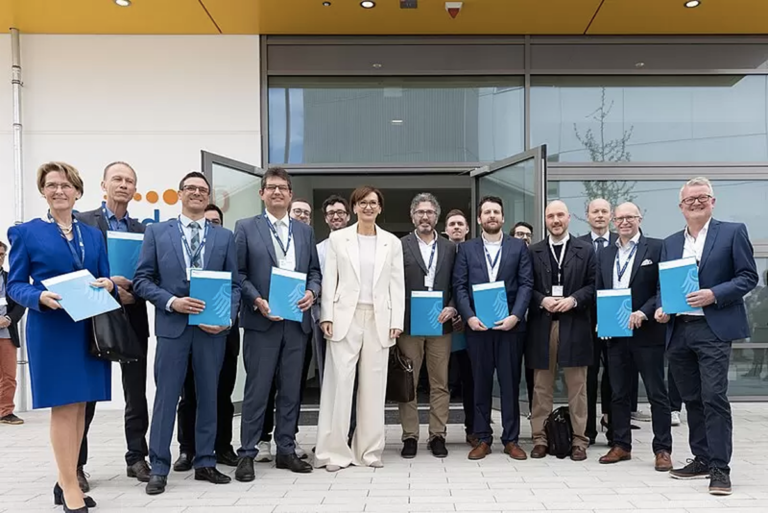A collaborative project led by German battery supplier Varta aims to develop sodium-ion battery technology on an industrial scale. The final product of the three-year, €7.5 million ($8.08 million) project will be a small series of round cells for electric vehicles and stationary storage systems.
A consortium of fifteen companies and universities led by battery manufacturer Varta has announced a collaboration project developing a high-quality, cost-effective and environmentally friendly cell chemistry for sodium ion batteries.
The ENTISE project has secured €7.5 million in funding from the German Federal Ministry of Research and Education and will officially launch in early June.
The work involves scaling up cell chemistry to industrial-level cell sizes. The end product is expected to be a small series of round cells that can be used in electric vehicles and stationary storage systems.
Varta said another central part of the project will be producing sufficient quantities of necessary materials to build both individual resilient laboratory samples and prototypes in round cell design. Then, in the final phase of the project, the individual components will be scaled up and transferred from the laboratory to the pre-industrial sector, through collaboration between the partners.
The end of the project is planned for mid-2027, with an accompanying technical, economic and environmental assessment to complete the project.
Sodium ion batteries are widely regarded as a sustainable and resource-saving answer to future energy storage, especially because sodium is readily available, cheap and safe, and can be easily disposed of or recycled. However, there is disagreement as to whether this is a viable alternative to lithium-ion batteries.
“For the German battery community, this project represents a milestone in the development of sustainable sodium-ion batteries,” said Varta CTO Rainer Hald. “In addition to existing technologies, sodium ion batteries can make an important, sustainable contribution to the decarbonization and electrification of many areas and thus actively shape the energy and mobility transition.”
Recent research from the Korea Advanced Institute of Science and Technology has identified a high-energy, high-power hybrid sodium-ion battery that can be charged in just a few seconds.
This content is copyrighted and may not be reused. If you would like to collaborate with us and reuse some of our content, please contact: editors@pv-magazine.com.


